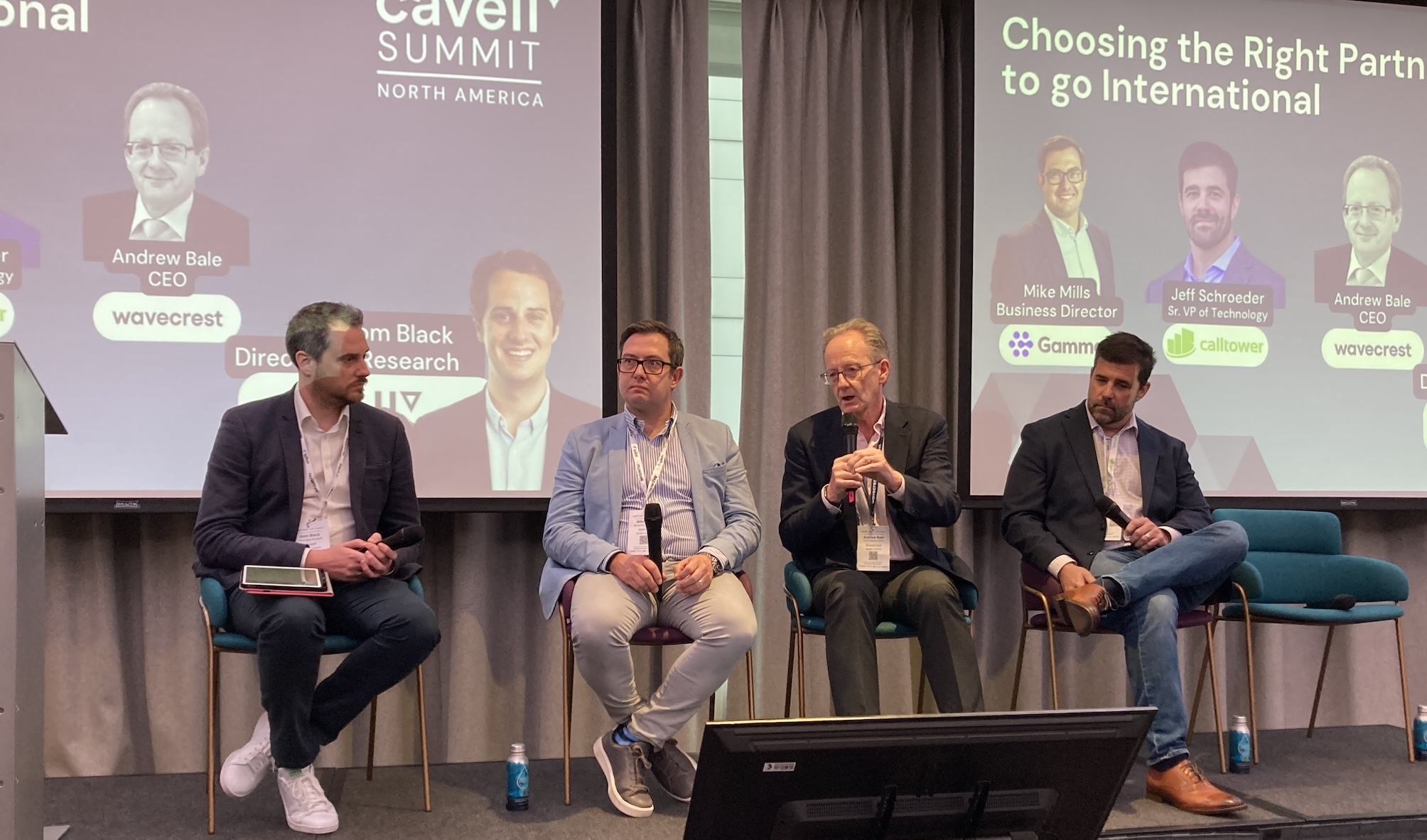Blog post
Managing voice in an AI world
04/24/24
James Ferguson
As telecoms enters an era dominated by AI, the voice landscape is undergoing a seismic shift. That brings with it risks as well as opportunities, and we think it demands a more strategic approach to managing voice services.

So what are the top challenges faced by telco execs in an AI world? And how can we manage voice networks effectively to safeguard their integrity and reliability?
The escalating battle against fraudsters and scammers
At Wavecrest we’ve talked a lot about the existential threat that fraud poses to the telco market. Year after year, fraudsters and scammers continue to exploit vulnerabilities in voice networks. This affects both unsuspecting consumers and large enterprises, and the consequences can be devastating.
Now AI poses a further challenge to the industry. Generative AI can produce enticing emails, texts and scripts that are as plausible and realistic as anything written by a human. When combined with the trusted nature of voice it makes it more likely that their targets will become victims.
That’s a potential boon for the organised gangs who make money from telco-driven fraud. As a result, telecoms systems are under constant pressure to stay ahead.
Four ways telco leaders can mitigate risk
We think industry leaders need to take four steps to tackle the security challenge posed by AI, each one building on the last.
1. Assembling the right team
In a fast-moving, tech-driven world, paradoxically one of the most important tools in our armoury is people. Well-trained, skilled and agile people are vital as they’re the ones who best understand the nuances of voice traffic and what AI-driven attacks look like. These professionals can respond to emerging threats, adapt security measures, and stay one step ahead of fraudsters. If AI is the enemy, then skilled and experienced people, working closely with technology, is the solution.
2. Investing in behaviour-based tools
Telcos have always allocated substantial resources to their security infrastructure. In an AI era, we need to make sure all the bases are covered, as any gaps will be exploited faster than ever. But telcos also need to move beyond their traditional security posture and invest in technology that supports the right behaviours among their staff. That helps counter the social engineering that fraudsters’ genAI can attempt at mass scale and little cost.
3. Real-time monitoring and response
Telco networks operate in real time, and their security measures must as well. With real-time monitoring tools, operators can detect anomalies, suspicious patterns, and unauthorised access. Extending this by using external data sources, such as the GSMA’s other number validation services, can make detection faster and more reliable. Automated responses, once detected, can mitigate risks before they escalate. This becomes critical in the ever-faster world of AI technology.
4. Collaborate and share intelligence
With the right people, tools and real-time monitoring in position, telco execs are then well-placed to flag what they observe and share what they learn. Telco leaders must collaborate within the industry and across sector boundaries, because sharing threat intelligence, best practices, and real-time insights is a great way to strengthen our collective defences against fraud. In particular, we must collaborate openly through industry forums and partnerships, like the @one consortium.
Securing the voice ecosystem globally
In an AI-driven world, managing voice services requires vigilance, expertise, and collaboration. Of course, telco execs want to embrace AI’s opportunities and the potential value of important innovations. But they also need to protect customers and rebuild their trust in the voice ecosystem.
As an industry, we must continually develop and enhance solutions that keep pace with the changing landscape. And we need to coordinate efforts that avoid regional solutions and instead focus on global ones.
By staying ahead of fraudsters and scammers, we can ensure that the voice market remains reliable, secure, and resilient into the future.
Related Resources

Choosing the right partner to go International
Choosing the right partner has never been more challenging but our industry collectively needs to focus on transparency, trust and processes that bring safety back to the consumer.
Read more >
Are US telcos surcharged?
Origin-based rating (OBR) was introduced to reset the financial balance between different countries within the EEA. As the US isn’t an expensive destination, US telcos typically don’t expect to be classed as an expensive origination so are they surcharged?
Read more >